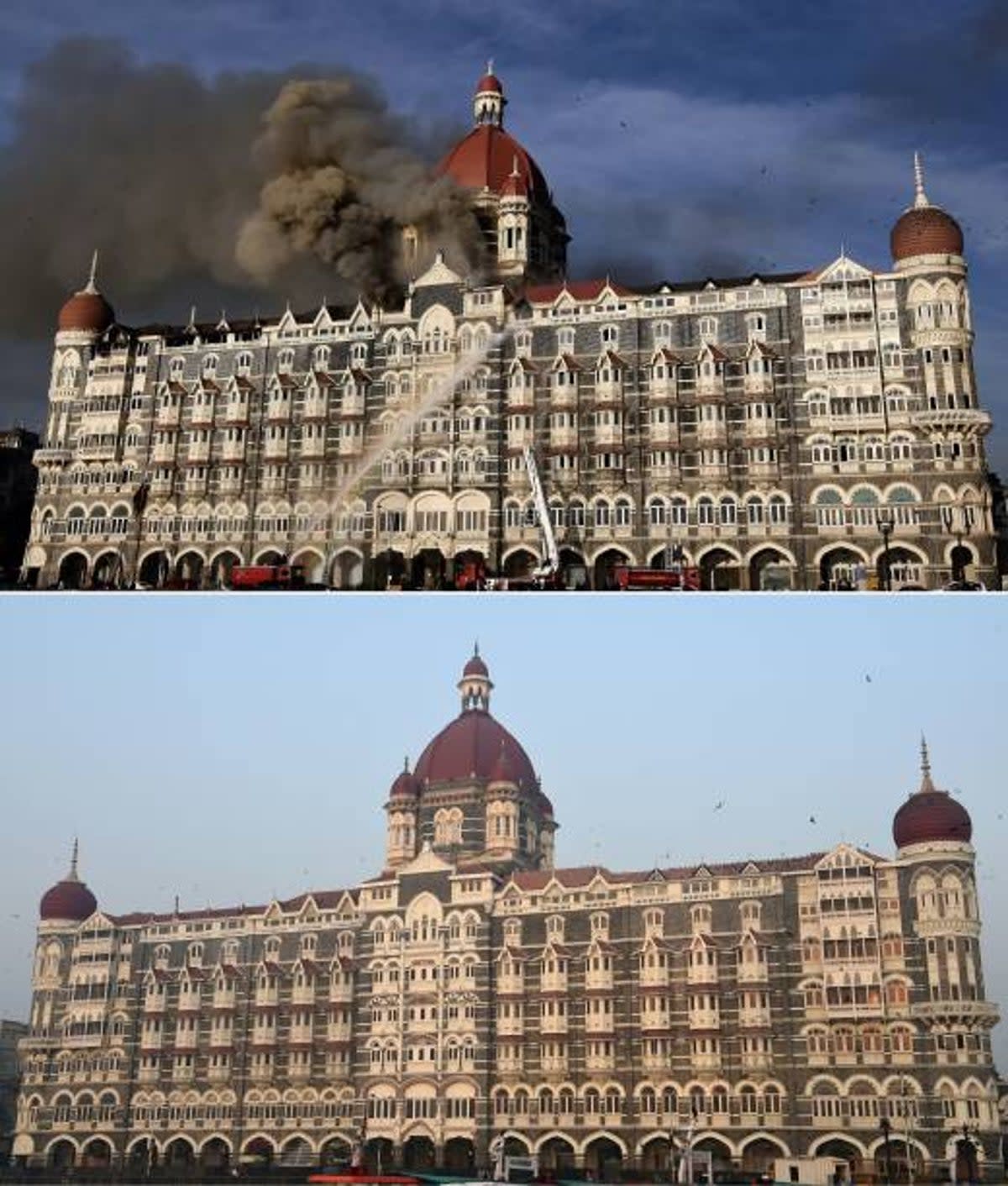China blocks India-US proposal to sanction Mumbai terror attack suspect
China blocked a proposal led by India and the US at the UN to blacklist Pakistan-based terrorist Sajid Mir, wanted for his involvement in the deadly 2008 terrorist attacks in Mumbai.
Beijing effectively obstructed the proposal moved by the US and co-designated by India to blacklist Mir as a global terrorist on the day Indian prime minister Narendra Modi arrived in the US for his first state visit.
Lashing out at China’s move, India played the audio clip at the United Nations General Assembly of the wanted terrorist directing handlers in Mumbai in real-time to shoot down people during the 26/11 attacks.
India issued a scathing response to China, calling it out for its “petty geopolitical interests” and “double standards”.
The attempt to blacklist Mir under the 1267 Al Qaeda Sanctions Committee at UNSC would have subjected him to assets freeze, travel ban and arms embargo.
Last year, China paused the proposal to sanction Mir at the UN. Beijing this time successfully blocked the proposal.
One of the most wanted terrorists in India, the Pakistan-based Lashkar-e-Taiba operative was indicted by both India and the US for his involvement in the three-day-long attacks on hotels, a train station and a Jewish centre on 26 November 2008 in India’s financial capital Mumbai.
The 60-hour siege of Mumbai led to the death of 166 people, including 26 foreigners and soured ties between India and Pakistan for the involvement of masterminds based in Islamabad.
The audio clip which was also played last year during a UN meeting in Mumbai allegedly contained the sound-byte of Mir directing his handlers in Mumbai to shoot down foreigners in Mumbai’s Taj Hotel.
Prakash Gupta, joint secretary at India’s permanent mission in New York said: "While the 9/11 terror bombings in this iconic city of New York had changed the landscape of the global counterterrorism architecture, the 26/11 Mumbai terror attacks shook the collective conscience of the world’s largest democracy.”
He said with China’s move India has “righteous reasons to believe that something is genuinely wrong with the global counter-terrorism architecture”.

“If we cannot get established terrorists who have been banned across global landscapes proscribed by the United Nations – for petty geopolitical interests – then we really do not have the genuine political will to sincerely fight this challenge of terrorism,” Mr Gupta added.
He said any justification of any kind being used to shield such terrorists should not be countenanced by anybody as a “terror act is a terror act”.
"The first and most critical gap we feel addressing is avoiding double standards, and this self-defeating justification of good terrorists versus bad terrorists,” he said.
Mir, believed to be in his mid-40s, has a $5m bounty by the US for his role in the Mumbai attacks in which six Americans were killed.
Islamabad claimed in the past that Mir died in 2021 but western countries and India are unconvinced of the claim and have demanded proof.
Last year, a Pakistani court in Lahore sentenced to jail on terror-financing charges following a speedy trial after he was arrested amid Islamabad’s desperate bid to be removed from the blacklist of the Financial Action Task Force (FATF).
He was convicted and sentenced to fifteen and a half years in prison in a three weeks trial.
China’s move on Tuesday aligned with its previous efforts to obstruct numerous proposals put forth by India and other nations at UNSC to impose sanctions on terrorists operating from Pakistan.
It placed “technical holds” for years to impose sanctions on Masood Azhar, a Pakistan-based Jaish-e-Mohammed terrorist wanted for several terrorist attacks in India, including Pulwama attack in Jammu and Kashmir on 14 February 2019.
China also blocked an India-US proposal to list Pakistan-based Abdul Rehman Makki as a global terrorist since June 2022, placing a “technical hold” on the proposal. In January this year, Beijing was forced to give up the “technical hold” on Makki after 14 out of 15 members voted in favour of the listing.
